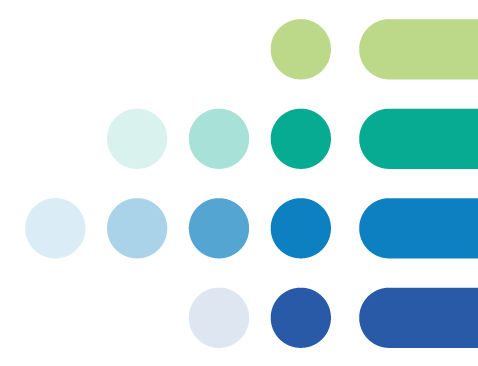Incubator
What is the Incubator?
What is the Incubator?
The Incubator was a funding and support program for established multi-sector or multi-focus local collaborations working to strengthen and advance equitable data-sharing ecosystems.
The program’s goal was to advance equity both through program impact and through the grantmaking process. In the Incubator, participating organizations and community members with lived experience co-designed the meaningful work that they then implemented, while DASH staff, technical assistance advisors, and peers provided structure and support.
The Program Design
Equity in data sharing
Public health, healthcare, and community-based organizations often work hard for their communities, but not always with them, even as they recognize the importance of centering equity and engaging their communities.
Community organizations with equitable data ecosystems are ones that have shifted their program and leadership processes in ways that the people most impacted by racism and health inequities have a deciding role in how data are collected, shared, and used.
WHO were the awardees?
The Incubator program was for multi-sector collaborations working to advance equitable data systems for health equity where at least one member had engaged with a DASH initiative previously.
Awardees focused on data governance and/or policy as applied to their local work. They also sought to strengthen equity, center community in their data governance practices, and their member organizations had established, sustained relationships with community members.
Awardees had a sustainability plan beyond this funding award.
What did DASH provide?
DASH provided funding, technical assistance, mentoring, and peer learning.
The award provided a total of $800,000 made available by the Robert Wood Johnson Foundation (RWJF).
The funding included compensation for community member participation, organizational staff, and contracting mentors and coaches.
What was the timeline?
The Incubator was an 18-month program that started in the spring of 2024 and went through the summer of 2025.

Equity in grantmaking
DASH aimed to advance equity both through program impact and through the grantmaking process. We believe that asking awardees to work toward equity and systems change will have a limited impact if we do not ask the same of ourselves.
For this reason, the Incubator was not a conventional grant that simply provides participating organizations with resources and expertise. Instead, it was a funding and support collaboration where participating organizations, together with community members with lived experience, co-designed the meaningful work that they implemented.
What were the Expected Outcomes?
DASH hoped to identify and promote data governance models that ensure community members, particularly those with lived experience of marginalization and injustice, can share in decision-making around collecting, interpreting, and using data to promote systems change to advance health equity.
What was the overall vision?
The long-term vision for this work was to see equitable data ecosystems develop nationwide that can hold states, public health, healthcare, and social services systems accountable to community members.
How does that look in practice?
Shifting power from organizations to the communities and individuals they are meant to serve.
Authentically including the input of community members with lived experience at all phases of data-sharing initiatives.
Building capacity at the implementation level to directly inform policy.
Developing sustainable equitable data governance models for dissemination and potential adaptation by other organizations and collaborations, no matter the sector.
Learn more
Briefs
Awardees
Atlanta Regional Collaborative for Health Improvement
ARCHI is a coalition of public, private and nonprofit organizations committed to improving health in the Atlanta region. ARCHI seeks to build a coordinated system of care that addresses social determinants of health and aids in navigating complex and siloed services. In the Incubator, ARCHI worked to expand its Rent, Mortgage, and Utility Relief Portal.
Holly City Development Corporation
HCDC works as a catalyst for change in the Center City neighborhood of Millville, NJ through their work around economic development, housing, and community development. Their Incubator focus was building connections and relationships with community members to better understand equity, data governance, and policies in their organization.
Datahaven
DataHaven provides Connecticut-based data on wellbeing and equity. Its Community Wellbeing Survey, conducted every 1 to 3 years, collects data from Connecticut residents to produce reliable information that is not otherwise available to the public. In the Incubator, their focus was to improve data equity by expanding language options and topics for the survey.
United Way of the Lakelands
United Way of the Lakelands’ mission is to connect people, resources, and organizations to create thriving communities in and around Greenwood, South Carolina. Their Incubator focus was to invest in their data collection, analysis, and dissemination processes through cross-functional teams that included community members, staff, and subject matter advisors.
Iowa Community HUB
Iowa Community HUB is a nonprofit community care hub that collaborates with health systems and community partners to prevent and manage chronic disease for Iowans of all ages, abilities, and incomes. In the Incubator, the HUB planned to build equitable, community-driven data governance systems for data sharing between healthcare and social care.
WNC Health Network
WNC Health Network supports community health and well-being across western North Carolina by collecting and expanding access to high-quality health data, enhancing and supporting health communications, and working collaboratively to strengthen health improvement. Their Incubator focus was to uncover disparities and understand social determinants affecting people.
Eau Claire City-County Health Department
The ECCCHD seeks to build a healthier community for all through prevention-focused programs and partnerships. In the Incubator, they planned to develop a structure of health equity and data governance within their death review teams, which were tasked with understanding risk factors and circumstances leading to fatalities and opportunities to reduce fatalities.
Via Link
VIA LINK provides crisis support, connects people to resources and services, and provides data to ensure that policies and programs meet community needs in Louisiana. Their Incubator focus was to empower people and agencies to build more people-centric, equitable data practices and to increase data literacy in Louisiana and in the South overall.
















